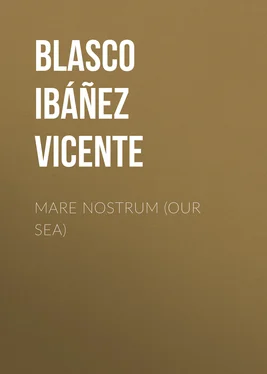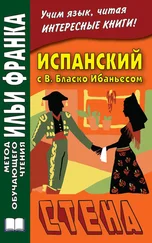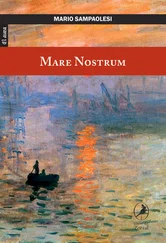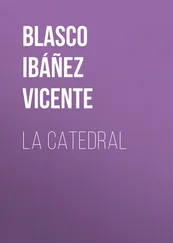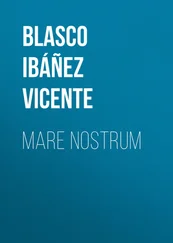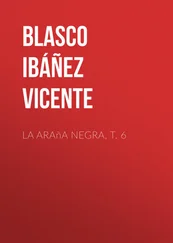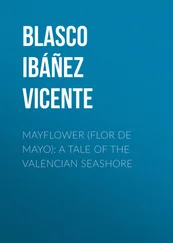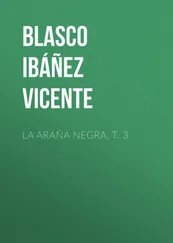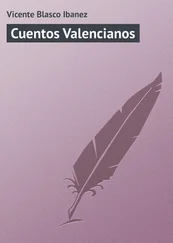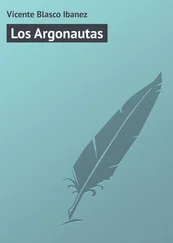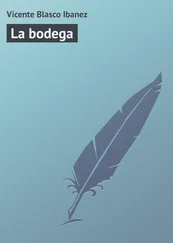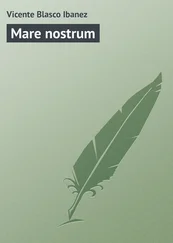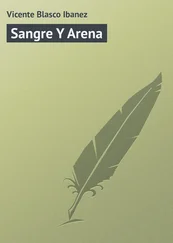Vicente Blasco Ibáñez - Mare Nostrum (Our Sea)
Здесь есть возможность читать онлайн «Vicente Blasco Ibáñez - Mare Nostrum (Our Sea)» — ознакомительный отрывок электронной книги совершенно бесплатно, а после прочтения отрывка купить полную версию. В некоторых случаях можно слушать аудио, скачать через торрент в формате fb2 и присутствует краткое содержание. Жанр: foreign_prose, foreign_antique, на английском языке. Описание произведения, (предисловие) а так же отзывы посетителей доступны на портале библиотеки ЛибКат.
- Название:Mare Nostrum (Our Sea)
- Автор:
- Жанр:
- Год:неизвестен
- ISBN:нет данных
- Рейтинг книги:5 / 5. Голосов: 1
-
Избранное:Добавить в избранное
- Отзывы:
-
Ваша оценка:
- 100
- 1
- 2
- 3
- 4
- 5
Mare Nostrum (Our Sea): краткое содержание, описание и аннотация
Предлагаем к чтению аннотацию, описание, краткое содержание или предисловие (зависит от того, что написал сам автор книги «Mare Nostrum (Our Sea)»). Если вы не нашли необходимую информацию о книге — напишите в комментариях, мы постараемся отыскать её.
Mare Nostrum (Our Sea) — читать онлайн ознакомительный отрывок
Ниже представлен текст книги, разбитый по страницам. Система сохранения места последней прочитанной страницы, позволяет с удобством читать онлайн бесплатно книгу «Mare Nostrum (Our Sea)», без необходимости каждый раз заново искать на чём Вы остановились. Поставьте закладку, и сможете в любой момент перейти на страницу, на которой закончили чтение.
Интервал:
Закладка:
In the most difficult perils,—days of storm and sinister shoals in the neighborhood of the treacherous coasts, Ferragut could decide to rest only when Toni replaced him on the bridge. With him, he had no fear that, through carelessness, a wave would sweep across the deck and stop the machinery, or that an invisible ledge would drive its stony point into the vitals of the vessel. He held the helm to the course indicated. Silent and immovable he stood, as though sleeping on his feet; but at the right moment he always uttered the brief word of command.
He was very skinny, with the dried up leanness of the bronzed Mediterranean. The salt wind more than his years had tanned his face, wrinkling it with deep crevices. A capricious coloring had darkened the depths of these cracks while the part exposed to the sun appeared washed several shades lighter. His short stiff beard extended over all the furrows and crests of his skin. Furthermore, he had hair in his ears, hair in the nasal passages, coarse and vibrating growths, ready to tremble in moments of wrath or admiration…. But this ugliness disappeared under the light of his little eyes with pupils between green and olive color,—mild eyes with a canine expression of resignation, when the captain made fun of his beliefs.
Toni was a "man of ideas." Ferragut only knew of his having four or five, but they were hard, crystallized, tenacious, like the mollusks that stick to the rocks and eventually become a part of the stony excrescence. He had acquired them in twenty-five years of Mediterranean coast service by reading all the periodicals of lyric radicalism that were thrust upon him on entering the harbors. Furthermore, at the end of every journey was Marseilles; and in one of its little side alleys was a red room adorned with symbolic columns where sailors of all races and tongues met together, fraternally understanding each other by means of mysterious signs and ritual words.
Whenever Toni entered a South American port after a long absence, he particularly admired the rapid progress of the new villages,—enormous wharves constructed within the year, interminable streets that were not in existence on his former voyage, shady and elegant parks, replacing old, dried-up lakes.
"That's only natural," he would affirm roundly. "With good reason they are republics!"
Upon entering the Spanish ports, the slightest deviation in the docking, a discussion with the official employees, the lack of space for a good anchorage would make him smile with bitterness. "Unfortunate country!… Everything here is the work of the altar and the throne!"
In the Thames, and before the docks of Hamburg, Captain Ferragut would chaff his subordinate.
"There's no republic here, Toni!… But, nevertheless this is rather worth while."
But Toni never gave in. He would contract his hairy visage, making a mental effort to formulate his vague ideas, clothing them with words. In the very background of these grandeurs existed the confirmation of the idea he was so vainly trying to express. Finally he admitted himself checkmated, but not convinced.
"I don't know how to explain it; I haven't the words for it … but … it's the people who are doing all this."
Upon receiving in Teneriffe the news of war, he summed up all his doctrines with the terseness of a victor.
"In Europe there are too many kings…. If all the nations could be republics!… This calamity just had to come!"
And this time Ferragut did not venture to ridicule the single-mindedness of his second.
All the people of the Mare Nostrum showed great enthusiasm over the new business aspect of things. The seamen who in former voyages were taciturn, as though foreseeing the ruin or exhaustion of their captain, were now working as eagerly as though they were going to participate in the profits.
In the forward mess room many of them set themselves to work on commercial calculations. The first trip of the war would be equal to ten of their former ones; the second, perhaps, might bring in the profit of twenty. And recalling their former bad business ventures, they rejoiced for Ferragut, with the same disinterestedness as the first officer. The engineers were no longer called to the captain's cabin in order to contrive new economies in fuel. They had to take advantage of the time and opportunity; and the Mare Nostrum was now going at full steam, making fourteen knots an hour, like a passenger vessel, stopping only when its course was blocked at the entrance of the Mediterranean by an English destroyer, sending out an officer to make sure that they were not carrying on board enemy passengers.
Abundance reigned equally between bridge and forecastle where were the sailors' quarters and the galley,—the space respected by every one on the boat as the incontestable realm of Uncle Caragol.
This old man, nicknamed "Caracol" (snail), another old friend of Ferragut's, was the ship's cook, and, although he did not dare to talk as familiarly to the captain as in former times, the tone of his voice made it understood that mentally he was continuing to use the old, affectionate form. He had known Ulysses when he used to run away from the classrooms to row in the harbor and, on account of the bad state of his eyes, he had finally retired from the navigation of coast vessels, descending to be a simple bargeman. His gravity and corpulence had something almost priestly in character. He was the obese type of Mediterranean with a little head, voluminous neck and triple chin, seated on the stern of his fishing skiff like a Roman patrician on the throne of his trireme.
His culinary talent suffered eclipse whenever rice did not figure as the fundamental basis of his compositions. All that this food could give of itself, he knew perfectly. In the tropical ports, the crews surfeited with bananas, pineapples, and alligator-pears, would greet with enthusiasm the apparition of a great frying pan of rice with cod and potatoes, or a casserole of rice from the oven with its golden crust perforated by the ruddy faces of garbanzos and points of black sausage. At other times, under the leaden-colored sky of the northern seas, the cook made them recall their distant native land by giving them the monastic rice dish with beet roots, or buttery rice with turnips and beans.
On Sundays and the fiestas of the Valencian saints who for Uncle Caragol were the first in heaven,— San Vicente Mártir, San Vicente Ferrer, La Virgin de los Desamparados and the Cristo del Grao —would appear the smoking paella , a vast, circular dish of rice upon whose surface of white, swollen grains were lying bits of various fowls. The cook loved to surprise his following by distributing rotund, raw onions, with the whiteness of marble and an acrid surprise that brought tears to the eyes. They were a princely gift maintained in secret. One had only to break them with one blow and their sticky juices would gush forth and lose themselves in the palate like crisp mouthfuls of a sweet and spicy bread, alternating with knifefuls of rice. The boat was at times near Brazil in sight of Fernando de Noroña,—yet even while viewing the conical huts of the negroes installed on an island under an equatorial sun, the crews could almost believe—thanks to Uncle Caragol's magic—that they were eating in a cabin of the farmland of Valencia, as they passed from hand to hand the long-spouted jug filled with strong wine from Liria.
When they anchored in ports where fish was abundant, he achieved the great work of cooking a rice abanda . The cabin boys would bring to the captain's table the pot in which was boiled the rich sea food mixed with lobsters, mussels, and every kind of shell-fish available, but the chef invariably reserved for himself the honor of offering the accompanying great platter with its pyramid, of rice, every grain golden and distinct.
Читать дальшеИнтервал:
Закладка:
Похожие книги на «Mare Nostrum (Our Sea)»
Представляем Вашему вниманию похожие книги на «Mare Nostrum (Our Sea)» списком для выбора. Мы отобрали схожую по названию и смыслу литературу в надежде предоставить читателям больше вариантов отыскать новые, интересные, ещё непрочитанные произведения.
Обсуждение, отзывы о книге «Mare Nostrum (Our Sea)» и просто собственные мнения читателей. Оставьте ваши комментарии, напишите, что Вы думаете о произведении, его смысле или главных героях. Укажите что конкретно понравилось, а что нет, и почему Вы так считаете.
